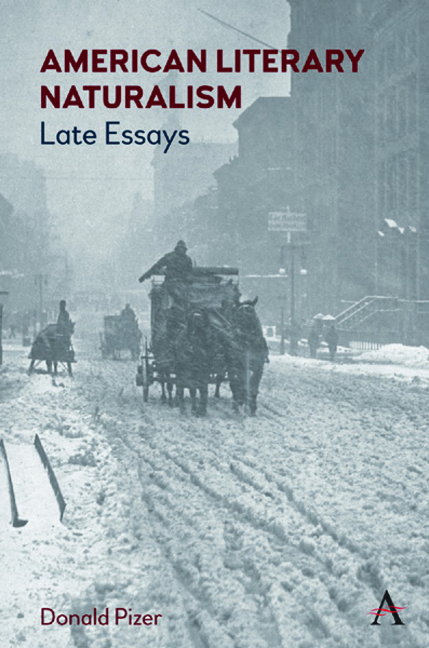4 - Jack London’s “To Build a Fire”: How Not to Read Naturalist Fiction
Published online by Cambridge University Press: 22 February 2022
Summary
It has been roughly two decades since Lee Clark Mitchell published in his study Determined Fictions: American Literary Naturalism a chapter devoted to an interpretation of Jack London's classic story “To Build a Fire,” a chapter which disturbed and irritated me when I read it at that time. In my review of the book in Nineteenth-Century Fiction, I dealt negatively with the study as a whole, but was not able in that format to discuss at length my specific misgivings about the London chapter. I return to the subject after this long hiatus because of my greater understanding at this point of the full dimensions of Mitchell's misreading. In the following account of my disagreement with his interpretation of the theme and technique of the story, my principal effort will be to correct a reading of a key naturalist text. But I will also seek to suggest at the close that his misinterpretation characterizes a broad spectrum of New Historicist and Cultural Studies accounts both of specific naturalistic texts and of naturalism as a whole since American naturalism became a focus of interest of many critics within these movements. In brief, I will attempt in this chapter to demonstrate that there is no persuasive evidence in the story for Mitchell's belief that it expresses man's determined condition, and that his effort to demonstrate the presence of this theme by deconstructing the story's style and technique also fails to convince. And it is my further contention that this mix of an ideology imposed on the fiction and the use of a postmodem critical method to assert its presence, a mix which for the most part ignores what the text clearly and emphatically seeks to communicate, characterizes a good deal of recent discussion of American naturalism by New Historicist and Cultural Studies critics.
Mitchell's effort to prove the validity of his claim that “To Build a Fire” expresses the naturalistic premise that man lives in a conditioned universe which denies him agency rests on the idea that London's key device for communicating this belief is repetition—the constant repetition in the story of almost every element in the telling, from sound, word, and syntax on the level of prose stylistics to that of event in the narrative.
- Type
- Chapter
- Information
- American Literary NaturalismLate Essays, pp. 57 - 66Publisher: Anthem PressPrint publication year: 2020

